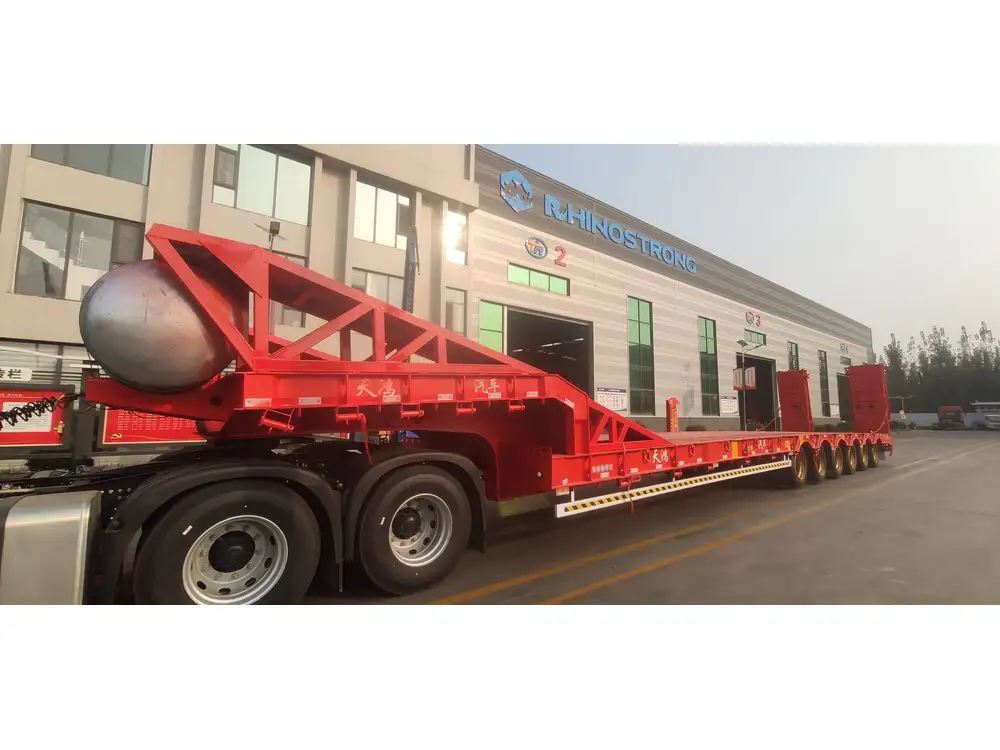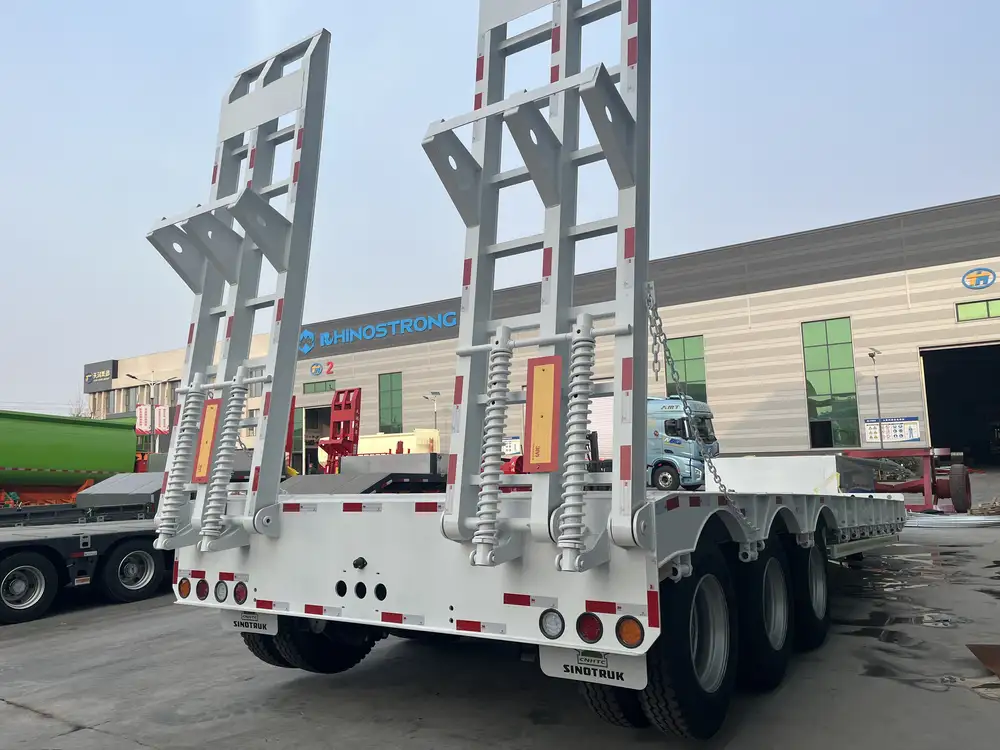Investing in a dump trailer can be a lucrative decision for individuals and businesses involved in construction, landscaping, or waste management. However, acquiring this essential equipment requires careful planning and consideration of financing options. In this detailed guide, we will explore various strategies to finance a dump trailer while addressing potential concerns that buyers may face throughout the process.
Understanding Your Financing Options
When it comes to financing a dump trailer, various options are available, each with unique advantages and potential drawbacks. Below is a breakdown of the most common financing routes.
1. Traditional Bank Loans
One of the most conventional ways to finance a dump trailer is through a traditional bank loan. Here are some key considerations:
Advantages:
- Generally lower interest rates compared to alternative lenders.
- Established institutions may offer flexible terms.
Disadvantages:
- Rigorous credit checks can lead to disqualification for those with poor credit.
- Lengthy approval processes may delay your purchase.

2. Equipment Financing
Equipment financing is tailored specifically for purchasing industrial equipment and trailers. Here’s how it generally works:
Advantages:
- Structured loans based on the value of the trailer.
- Can include repayment terms that match cash flow cycles.
Disadvantages:
- Valuation of the dump trailer may be subject to depreciation, affecting the terms of the loan.
3. Credit Union Financing
Credit unions often provide competitive interest rates and personalized service. Here’s a closer look:
Advantages:
- Lower fees and costs associated with financing.
- More personalized service and strong community ties.
Disadvantages:
- Membership requirements may limit some buyers.
- Typically more conservative lending criteria.
4. Lease-to-Own Options
Leasing a dump trailer with the option to buy later can be a smart way to enter the market:
Advantages:
- Lower immediate financial burden with manageable monthly payments.
- Opportunity to assess the trailer’s functionality before committing to purchase.
Disadvantages:
- Higher long-term cost if you decide to purchase the trailer at the end of the lease.
- Limitations on trailer modifications during the lease term.

5. Personal Loans
If other avenues do not suit your needs, consider a personal loan:
Advantages:
- Quick access to funds and minimal collateral requirements.
- Flexibility in using the perceived loan for any purchased items.
Disadvantages:
- Generally higher interest rates than other loan types.
- Shorter repayment periods can lead to higher monthly payments.
6. Government and Subsidy Programs
Certain governmental programs are designed to support businesses within specific industries:
Advantages:
- Lower interest rates or grants available for qualifying businesses.
- Programs may include tax benefits or incentives for equipment purchases.
Disadvantages:
- Lengthy application processes with strict eligibility criteria.
- Funds may be limited and become competitive.
Factors to Consider Before Financing a Dump Trailer
Before committing to a particular financing option, there are several factors worth considering:

1. Credit Score Impact
Your credit score significantly impacts loan rates and terms. Before applying for financing, it is prudent to:
- Check your credit report for inaccuracies.
- Assess your score; higher scores typically lead to more favorable financing conditions.
2. Budgeting for Payments
Setting a clear budget before diving into financing is crucial. Consider:
- Monthly payment limits based on your revenue.
- Additional costs associated with trailer ownership, such as insurance and maintenance.
3. Understanding Trailer Types and Costs
Different types of dump trailers are available, and costs can fluctuate based on brand, size, and additional features like:
| Type of Dump Trailer | Typical Cost (USD) | Key Features |
|---|---|---|
| Standard Dump Trailer | $4,000 – $10,000 | Capacity ranges, basic features |
| Gooseneck Dump Trailer | $8,000 – $20,000 | Enhanced capacity, higher durability |
| Tilt Bed Dump Trailer | $5,000 – $15,000 | Easy loading, versatile use |
| Side Dump Trailer | $15,000 – $35,000 | Specialized cargo handling |
Understanding the types and their respective features will help you negotiate better financing terms based on the trailer’s intended use.

4. Interest Rate Variability
Interest rates can vary significantly among different lenders. Evaluate:
- Fixed vs. variable rates, where fixed avoids payment fluctuations.
- Current market trends to secure the best possible rate.
The Financing Process Explained
Navigating the process of financing a dump trailer requires understanding each step:
1. Research Lenders
- Investigate multiple lenders to compare terms and rates.
- Gather reviews and testimonials about customer experiences.

2. Prepare Documentation
Most lenders require specific documentation, including:
- Business financial statements (if applicable).
- Proof of income and credit history.
- Information regarding the trailer you plan to finance.
3. Submit Applications
Complete application forms accurately and submit them to your selected lenders.
4. Review Offers
Receive loan offers and compare them carefully. Pay attention to:
- Total loan cost versus the interest rate.
- Payment terms and conditions.

5. Finalize the Agreement
Once you select a loan offer, carefully read through the terms, sign the agreement, and receive your funds.
Frequently Asked Questions
How Much Do I Need to Put Down on a Dump Trailer?
Down payments typically range from 10% to 30%, depending on the lender’s requirements and your creditworthiness. A larger down payment often results in reduced monthly payments and overall financing costs.

What If I Have Bad Credit?
If your credit score is low, you might consider:
- Securing a co-signer with a stronger credit history.
- Focusing on lenders specializing in subprime financing.
- Improving your credit score before applying.
Can I Refinance a Dump Trailer Loan?
Yes, refinancing is an option that allows you to obtain better terms if your financial situation changes or if interest rates decline. Evaluate:
- Closing costs associated with refinancing.
- Any penalties for early repayment on your original loan.
How Do I Maintain My Dump Trailer?
Maintaining your dump trailer is essential for prolonging its life and performance. Key maintenance tips include:
- Regular inspections of tires, brakes, and hydraulic systems.
- Keeping the trailer clean to prevent rust and degrade.
- Staying current on necessary repairs to avoid operational issues.

Is Insurance Necessary for a Dump Trailer?
While it may not be legally required, carrying insurance on your dump trailer protects against damage, theft, and liability, which can save you from significant financial burdens.
Conclusion: Making the Right Financial Decision
Financing a dump trailer is a multifaceted process that can be accomplished with thorough research, planning, and strategic decision-making. By evaluating various financing options, understanding your financial position, and taking the time to compare offers, you can secure the best deal for your business goals. Armed with this knowledge, you are now better equipped to navigate the financing landscape and make a confident investment in your dump trailer. Remember, understanding the nuances of each financing method and staying informed about your financial responsibilities will lead you to success on your path to owning this essential equipment.



